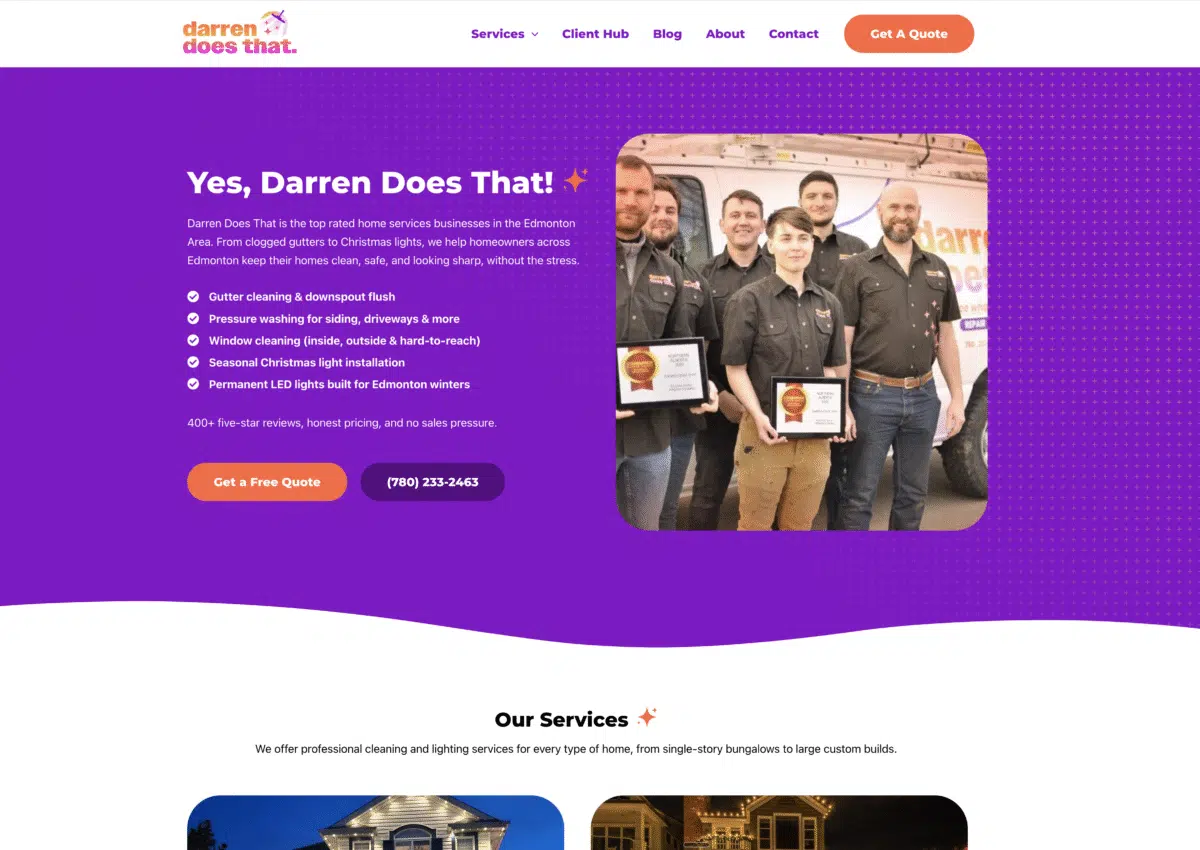Introduction
In today’s dynamic digital economy, businesses are seeking faster, more cost-effective, and agile ways to manage enterprise operations. One of the most transformative trends in this space is the rise of low-code/no-code (LCNC) development platforms. These platforms are redefining how organizations approach enterprise resource planning (ERP) customization—empowering non-developers to create, automate, and optimize business applications with minimal IT intervention.
At the heart of this revolution are Dynamics implementation partner who are helping businesses unlock the full potential of Dynamics 365 using low-code/no-code tools like Microsoft Power Platform. By combining the depth of Microsoft’s ERP capabilities with the flexibility of LCNC development, these partners are paving the way for a future where customization is no longer a luxury, but a standard feature of modern digital transformation.
The Rise of Low-Code/No-Code in ERP
Traditionally, ERP systems have been known for their complexity and rigidity. Customizing ERP functionalities typically required extensive coding, specialized developers, long project timelines, and hefty budgets. However, with the emergence of low-code and no-code tools, companies can now rapidly build custom workflows, forms, dashboards, and even full applications with little to no programming.
Microsoft has been a pioneer in this shift, offering a tightly integrated suite that includes Dynamics 365, Power Apps, Power Automate, Power BI, and Dataverse. This unified ecosystem empowers businesses to extend their ERP capabilities with intuitive tools, ensuring faster innovation and reduced dependency on IT departments.
Low-code/no-code is not just about speed—it’s about democratizing technology. Business analysts, operations managers, and department heads can now create solutions tailored to their unique needs, without waiting in long development queues.
Why Microsoft Dynamics Partners are Key to LCNC Success
While LCNC tools are designed to be user-friendly, navigating them effectively still requires strategic oversight, governance, and integration expertise. That’s where Microsoft Dynamics partners come in. These partners act as trusted advisors, helping businesses build scalable low-code/no-code solutions while ensuring security, performance, and alignment with business goals.
Here’s how Microsoft Dynamics partners are driving LCNC ERP customization:
1. Strategic Planning and Governance
Partners help businesses define the scope of LCNC development and avoid “app sprawl”—a common risk when too many disconnected solutions are created. They establish frameworks for governance, data integrity, and user access, ensuring consistency across departments.
2. Integration and Data Connectivity
LCNC solutions often need to connect with multiple data sources such as finance, HR, CRM, or legacy systems. Microsoft Dynamics partners ensure smooth integration across Dynamics 365 modules and external platforms through APIs and Microsoft Dataverse.
3. Co-Development and Enablement
Instead of taking full control, modern partners focus on co-creation. They build foundational applications while training internal staff to develop and maintain their own apps. This hybrid model accelerates adoption and promotes digital independence.
4. Custom UI/UX and Workflow Design
Even in a no-code environment, user experience matters. Partners assist in designing intuitive interfaces and streamlined processes that align with business logic and user behavior.
5. Scaling and Optimization
Once a proof of concept succeeds, partners help scale applications across the organization. They monitor performance, recommend enhancements, and ensure compliance with evolving data policies.
Top Microsoft Dynamics Partners for Low-Code/No-Code ERP Customization
The following Microsoft Dynamics partner companies are recognized for their expertise in blending Dynamics 365 with Power Platform capabilities to deliver powerful low-code/no-code ERP solutions.
InTWO
InTWO is a global Microsoft Solutions Partner with a strong reputation in delivering cloud-first ERP implementations using Microsoft Dynamics 365. Their team has deep experience in leveraging Power Platform tools like Power Apps, Power Automate, and Power BI to create agile, industry-specific solutions that extend core ERP functionality.
InTWO’s LCNC strategy focuses on empowering business users through workshops and co-development initiatives. Whether it’s building a custom procurement workflow or automating employee onboarding, InTWO helps clients unlock rapid innovation without sacrificing control. Their success stories span industries like construction, manufacturing, logistics, and real estate—making them a go-to partner for scalable digital transformation.
Hitachi Solutions
Hitachi Solutions is a top-tier Microsoft Dynamics partner known for its enterprise-grade implementations and deep vertical expertise. Their Power Platform Center of Excellence supports LCNC development across finance, supply chain, customer service, and field operations.
Hitachi’s methodology combines agile development with data governance and change management—ensuring that clients can innovate quickly without compromising system stability or compliance. Their tailored accelerators and templates for industries like retail, utilities, and healthcare shorten time-to-value and reduce risk.
Avanade
Avanade, a joint venture between Microsoft and Accenture, brings enterprise-level scale and innovation to Dynamics 365 customization. With a strong focus on citizen development, Avanade helps clients build LCNC solutions that drive productivity and business agility.
Their unique advantage lies in combining Microsoft technology with Accenture’s strategic consulting expertise. Avanade supports large enterprises in implementing automation at scale, from simple approval workflows to AI-enhanced analytics dashboards.
Alithya
Alithya is a North American Microsoft Dynamics partner known for its strategic approach to ERP and CRM customization. Their team integrates Dynamics 365 with Power Platform tools to deliver modular, cost-effective applications that evolve with business needs.
Alithya’s education-focused offerings also include LCNC training sessions for business users, enabling clients to foster an internal culture of innovation. This approach makes them a favorite among mid-market companies looking to modernize their operations without heavy upfront investment.
Incremental Group (part of Telefónica Tech)
Incremental Group specializes in Microsoft Dynamics and Power Platform solutions for both public and private sector organizations. Their LCNC services include rapid app development, automation of back-office tasks, and advanced reporting dashboards.
With experience in sectors like government, housing, and finance, Incremental brings a practical, compliance-first approach to low-code ERP customization. Their work emphasizes accessibility, security, and ongoing support.
Benefits of Low-Code/No-Code ERP Customization with a Dynamics Partner
Faster Time to Value
LCNC solutions can be built in weeks, not months. When implemented with guidance from a Microsoft Dynamics partner, this speed doesn’t come at the cost of security or scalability.
Reduced Development Costs
By involving citizen developers, businesses reduce dependency on external development resources—leading to significant cost savings over time.
Increased User Adoption
When business users are involved in building or shaping applications, they’re more likely to embrace them. Partners help facilitate this engagement with hands-on training and iterative feedback.
Greater Business Agility
In fast-changing markets, companies need to adapt quickly. Low-code customization allows for rapid updates and experimentation, helping organizations stay ahead of competition.
Future Outlook: Where LCNC Meets AI
The future of LCNC in ERP customization is evolving fast, especially with Microsoft introducing AI capabilities into Power Platform. Tools like Copilot in Power Apps will soon allow users to describe applications in plain English and let AI build them. This will further lower the barrier to customization, making the role of Microsoft Dynamics partners even more strategic.
Rather than simply building apps, partners will become enablers of innovation ecosystems—offering frameworks, governance, and AI readiness. They’ll also play a key role in monitoring data ethics, ensuring AI-driven customizations remain compliant and ethical.
Conclusion
The convergence of ERP and low-code/no-code platforms is creating new opportunities for organizations to innovate quickly, adapt flexibly, and reduce reliance on traditional development cycles. With Microsoft’s robust Power Platform and the modular strength of Dynamics 365, the future of ERP customization is citizen-driven, fast-moving, and highly collaborative.
To navigate this shift, businesses need more than tools—they need guidance. A trusted Microsoft Dynamics partner like InTWO can provide the strategic foundation, technical expertise, and co-development support needed to succeed in the era of low-code digital transformation.
Whether you’re a mid-sized enterprise looking to digitize manual processes or a global organization aiming to empower business users, now is the time to explore low-code customization with the right Microsoft Dynamics partner by your side.






